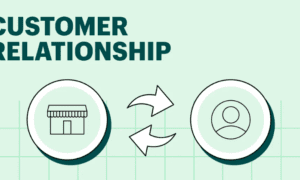A customer relationship management system is a software-based service that assists with the acquisition, retention, and renewal of customers. CRM tools can help your company by helping you easily interact with clients and prospective clients to see how they are viewing your services or products. You can also generate more leads for your business by increasing visibility into what new leads come through. The world of CRM is constantly changing and evolving, but it’s crucial to stay ahead of the curve in order to have success in this area.
As a business owner, your primary goal through all of this is to make money, and CRM software will provide you with numerous ways in which you can do that. Managing your customer relationship is crucial in order to ensure long-term success for your business. The only way to have lasting success is by engaging every single customer and making them happy with the services or products you offer. The best way to do that is by providing them with excellent customer service.
What is Real Estate CRM?
Real estate CRM is one of the hottest trends in lead generation and customer retention. Real estate CRM assists in managing your real estate brokerage or real estate agency customers by making them happy by getting them to buy, stay, and refer their friends. This is done through different tools including call recording systems, email monitoring, surveys, and sourcing tools.
The most important part of a real estate CRM system is the agent portal. Here, agents are prompted to update their contact information, provide feedback on past clients, and take notes on each service or product used with every individual customer. Your business will be more profitable by ensuring that your agents are using the proper form of communication for each situation. This helps you retain customers by following up with them promptly and communicating efficiently.
Major Types of Real Estate CRM Software and the Best Choice:
1. Desktop real estate CRM software:
Desktop real estate CRM software can only be used on a computer’s desktop and is usually accessible through a website. These solutions are primarily accessed through smartphones, which allow agents to make notes in the field. Desktop CRM software makes it easy for agents to access relevant data from anywhere and also provides companies with the ability to schedule visits, calls, and meetings from any location.
This type of software has gained a lot of popularity recently because of the number of companies that are using it. The flexibility offered by this technology makes it a popular choice for businesses that are always on the go.
2. Cloud-based real estate CRM software:
Cloud-based real estate CRM software allows agents to access their database from any device. This makes it possible for agents to access data from anywhere at any time. Cloud-based real estate CRM is primarily used when a company has multiple offices or even just a few branches. It allows businesses to access real-time information no matter where they are located, which leads to faster turnaround times in terms of service and communication.
The security offered by cloud-based CRM software is unparalleled. The software has built in encryption, which ensures that data is always secure from any intrusion. This also allows agents to provide clients with a secure connection to the database, which prevents hackers from being able to see sensitive information.
How do realtors use Real Estate CRM?
Realtors use real estate CRM to generate more leads. For businesses that are focused on growing, this is an ideal option. You can also use it to measure how successful your marketing efforts are and make changes accordingly, which will help you be more productive. Real estate CRM allows you to create a detailed look into all the interactions that you have with your customers and prospects in order to provide them with superior customer service.
Real estate CRM software allows you to track the source of your leads, what type of communication was used, and how long it took for each individual customer to respond. You can also see when and where they were contacted in order to make sure that you are contacting new leads in the most effective manner possible. It even gives you an opportunity to track whether or not a lead was successfully converted into a paid client. Data tracking is widely used in the real estate industry because it’s an essential part of knowing how to generate more leads for your business. The data that you collect through your CRM system will allow you to provide a higher level of service to clients and generate more leads. This is the only way for you to have long-term business success.
How to manage customer relationships with a Real Estate CRM?
The key is to make it simple for your prospects to find and communicate with you. With tools like lead tracking, you’ll know who to follow up with or when you can get in touch with them again. You’ll know where they are located and when they are available for a sales conversation. You can even set reminders and alerts on your phone for 15-second messages that will remind you when it’s time to reach out again.
Your real estate CRM system will also allow you to broadcast messages on the social media sites that your potential clients are using. This is a valuable tool when it comes to marketing your business. The best part about the real estate industry is that there’s no one way to succeed. It’s important for each agent to have the most effective tools at their disposal, which helps them decide how they want to approach each lead or client.
In Conclusion:
There are a lot of advantages to using real estate CRM software. The most important benefit is increased communication and engagement with your customers. This leads to higher sales and leads, which are the most important part of any business. The ability to measure how effective your marketing efforts are will help you determine what changes need to be made in order for you to grow your business.



































